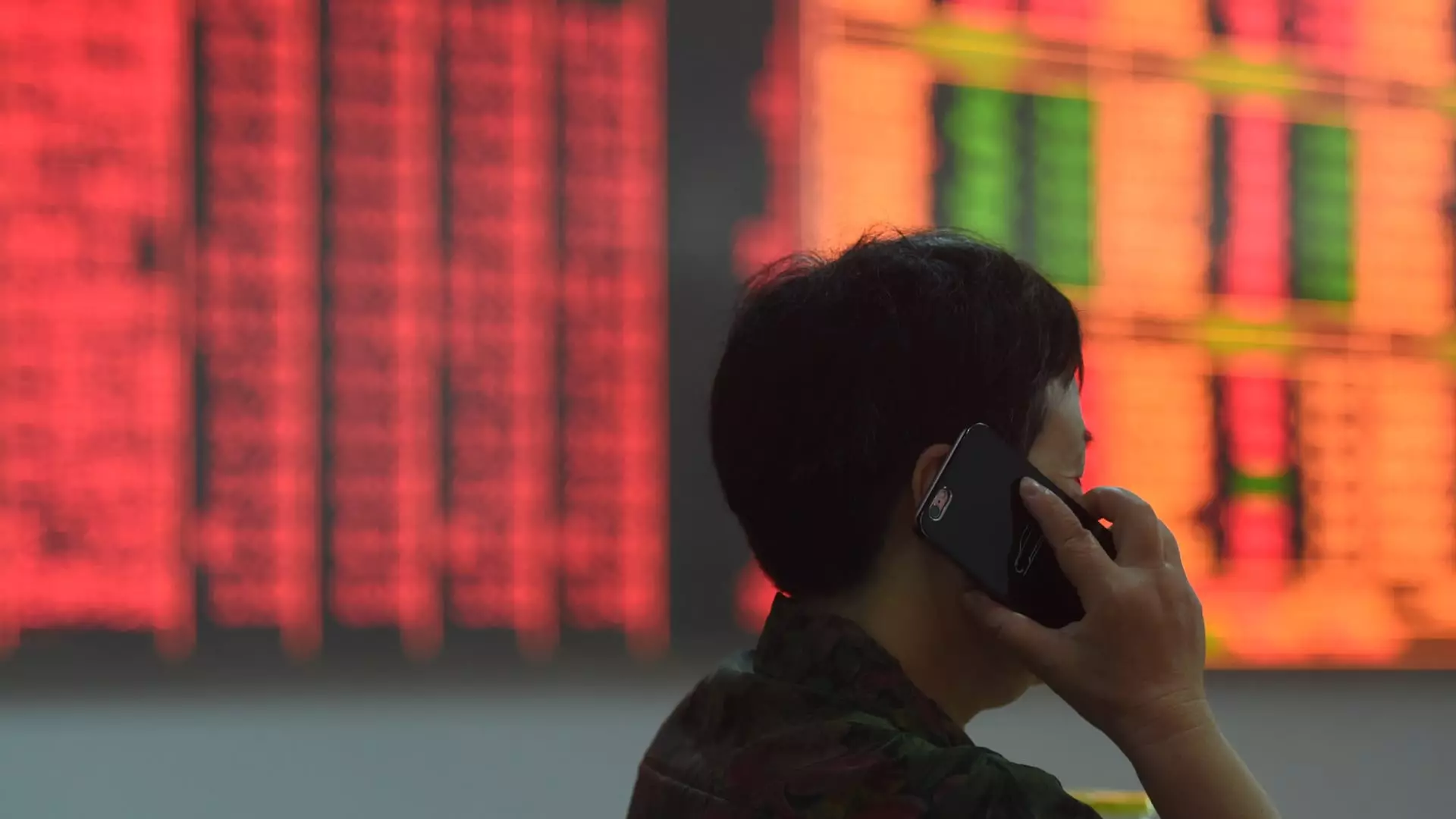On a remarkable day for the Chinese equity markets, stocks surged to heights not witnessed in over a decade, inspired by a wave of economic stimulus from the Chinese government. The Shanghai Composite Index marked an impressive increase of 8.06%, its best performance since the financial turmoil of September 2008. This rally capped off a remarkable nine-day winning streak, leaving the index up by an astonishing 17.39% by the end of September—its first monthly increase in five months. Such performance harkens back to auspicious times, reminiscent of gains made as far back as April 2015.
The Shenzhen Composite Index was not to be outdone, achieving a remarkable rise of 10.9%, its highest since 1996. With a staggering 24.8% increase throughout September, this index also marked its best monthly performance since April 2007. The positive sentiment surrounding Chinese equities was palpably felt in related U.S. exchange-traded funds (ETFs) as well, with the China ADR index experiencing a rise of nearly 6%.
In the broader context of the rebound, several key sectors and companies stood out during this market resurgence. Prominent U.S.-listed shares performed exceptionally well, with Kanzhun and Bilibili seeing increases of 9% and sustained gains including Tencent Music Entertainment and Futu Holdings, which rose by 2.9% and 15%, respectively. This flurry of activity underlines a revived interest in Chinese technological advancements and consumer trends.
The KraneShares CSI China Internet ETF (KWEB) gained 4.2%, reflecting renewed investor enthusiasm for tech-centric investments, while the iShares China Large-Cap ETF (FXI) also rose by 2.2%. Alibaba and JD.com, key players in the e-commerce sphere, gained more than 4% and 5.4%, showcasing the significant investor confidence in these major corporations.
The catalyst behind this flourishing market was a series of economic stimuli introduced by Beijing, which included cuts to interest rates aimed at revitalizing the floundering property sector. Following the announcement, state media confirmed the backing of President Xi Jinping and other high-ranking official figures. This political endorsement played a vital role in boosting market confidence, as noted by market analysts like Art Hogan of B. Riley Securities, who expressed a cautious optimism regarding the effectiveness of these measures.
Hogan emphasized that while it is unclear whether these steps will fully revitalize the economy, they signify a proactive approach on the part of the Chinese leadership, which cannot be overlooked. He suggested that investors may need to recalibrate their market expectations, adjusting to the emerging dynamics of a potentially rejuvenated Chinese economy.
The soaring stock performance has influenced sentiment significantly among U.S. investors, with increased bullishness emerging towards Chinese equities. Notable hedge fund manager David Tepper has publicly stated his overwhelming optimism regarding Chinese stocks, indicating a major shift in investment strategies as a result of the Federal Reserve’s recent policy adjustments.
This resurgence in the Chinese markets holds great significance not just for domestic stakeholders, but also for global investors who see the potential for higher returns amid evolving economic landscapes. As the situation develops, attention will turn to whether these gains can be sustained and what further stimuli might be necessary to secure lasting economic stability.


Leave a Reply